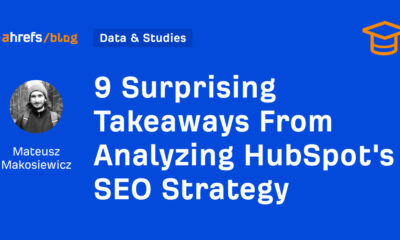TECHNOLOGY
Equinix Cloud Transformation Conference 2022: The key takeaways

This year’s Cloud Transformation Conference, powered by Equinix and TechForge, saw industry leaders gather to discuss the importance of a “digital-first” strategy.
For this roundup, CloudTech caught up with some of the world-class speakers at the event to get their thoughts on the key topics discussed during the conference.
Here’s a list of the speakers featured in this article:
- Dax Grant, CEO of Global Transform, Forbes Technology Council
- Erik Thorwirth, Head of Global Infrastructure at Henkel
- Steen Dalgas, Senior Cloud Economist at Nutanix
- Grace Andrews, Principal Product Evangelist at Equinix Metal
- Christine Hart, Head of Enterprise Network Services at KPMG
Digital-first
We can all think of enterprises that once appeared unstoppable, but a failure to move with the times ended up confining them to the history books. In today’s world, a technology-led, digital-first strategy is essential.
“A digital-first approach is viewed as key within today’s connected world. The healthiest businesses are consumer and client-centred, with digitisation in service of the value driven to the marketplace,” says Grant.
“A careful balance of experience, accessibility, and commercial value is needed while including a focus on the environmental, social, and governance (ESG) goals that organisations have.”
Some enterprises are better placed than others to pivot to a digital-first strategy. However, good leadership will help to ensure a successful transition for the long-term benefit – even survival – of the business.
“A digital-first approach requires enterprise leadership in all instances, with technology having one of the key seats around the table,” Grant adds.
“For startups and venture-backed firms, the digital-first approach is often easiest to implement whilst established firms have legacy systems to consider.”
Sustainability
Beyond the moral reasons to improve the sustainability of your operations, customers are increasingly opting to do business with enterprises that align with their own goals to reduce their footprints.
Thorwirth says there’s a need to look at sustainability holistically and an “urgent need” to be more transparent with consumers.
Dalgas points out that now it’s the sustainability lead calling the shots when making a decision – a stark difference from 20 years ago. He goes on to say that the IT community often doesn’t “properly understand” the challenges and responsibilities of sustainability. In contrast, Dalgas says the finance community does understand sustainability.
Organisations that seek to become more sustainable are sure to reap the long-term benefits; it might just take some work getting all teams on board.
Foot on the digital accelerator
When asked whether the pandemic accelerated Henkel’s transformation strategy, Thorwirth says “definitely”, but adds that it was also more than that. He highlights that it was a complete “disruption” with people having to switch to virtual working within days.
Thankfully, many modern organisations have been putting in place cloud technologies to support remote work and our fast-paced, mobile lives for some time.
In the case of Henkel, people already had the tech and just needed to be introduced to work successfully with it. Companies that have resisted digital-first strategies weren’t so lucky.
“In comparison to Henkel, some companies were heavily disrupted: culturally and technologically,” adds Thorwirth. He says that companies not only need to be “super-fast and flexible” but always be “one step ahead”.
Talent shortages
Embarking on a digital-first strategy is only possible with the right talent. High employment, record vacancies, and skill shortages have combined to make it difficult for companies to attract the talent they require.
“Within a world focused on digitisation, there is a market demand for key skills,” says Grant. “From a development perspective, the ability to code in the most up-to-date languages is key. However, organisations with legacy systems require the ability to code in legacy languages.”
“There are clear global hubs where skills are in-demand as many organisations adopt a ‘follow-the-sun’ approach.”
Flexible working has opened up new opportunities for tech experts to work for organisations that better suit their needs. A physical office location is no longer a key factor in choosing where to work.
“The ability to work flexibly within the marketplace has also given technology experts the ability of increased choice; often selecting organisations on strength of purpose as a differentiator in today’s connected world,” explains Grant.
Supporting hybrid/remote work
One of the benefits that enterprises have found to adopting hybrid/remote working practices is access to a wider talent pool. Given the aforementioned skill shortages, many businesses have decided to continue – or increase – their support for more flexible working practices.
Many jobs were either very difficult or impossible to do from home just a couple of decades ago. Now, cloud technologies and widespread fast internet connections have enabled many people to be more productive working from home.
Hart says that KPMG is “extremely pro-hybrid”, especially as – in many cases – now you can often “do 95 percent of your job on your phone”.
While there’s no replacement for some physical events, one of the main pitches for the metaverse is the ability to hold global events without the need for both the carbon and financial costs of travel. Such events can ensure that everyone is able to participate; no matter where they are or their financial situation. Automatic translations can even break down language barriers.
Cloud technologies are continuing to help businesses thrive no matter the challenges they face, but it will take strong leadership that embraces a digital-first strategy to take full advantage of the possibilities they offer.
Source link



















You must be logged in to post a comment Login